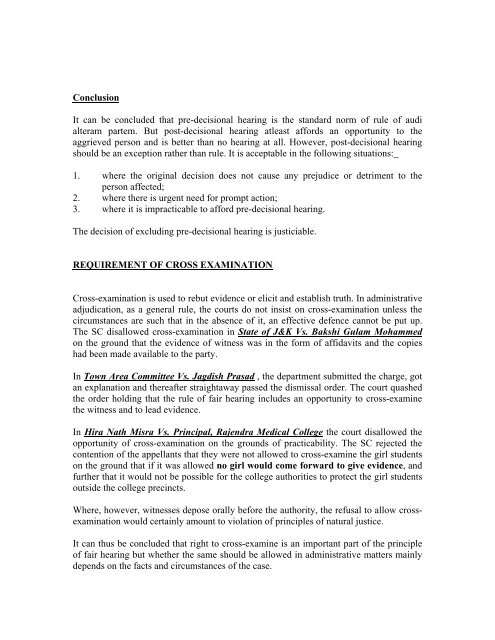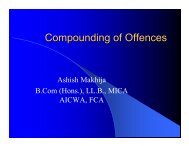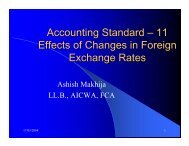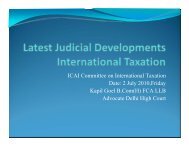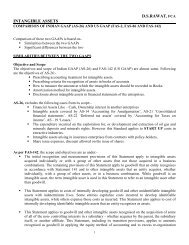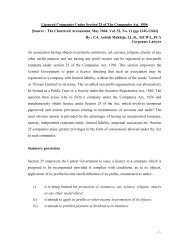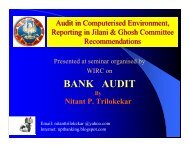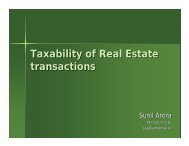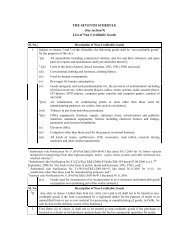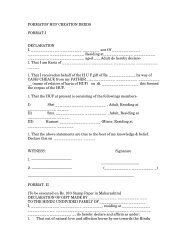PRINCIPLES OF NATURAL JUSTICE - hreat
PRINCIPLES OF NATURAL JUSTICE - hreat
PRINCIPLES OF NATURAL JUSTICE - hreat
You also want an ePaper? Increase the reach of your titles
YUMPU automatically turns print PDFs into web optimized ePapers that Google loves.
Conclusion<br />
It can be concluded that pre-decisional hearing is the standard norm of rule of audi<br />
alteram partem. But post-decisional hearing atleast affords an opportunity to the<br />
aggrieved person and is better than no hearing at all. However, post-decisional hearing<br />
should be an exception rather than rule. It is acceptable in the following situations:_<br />
1. where the original decision does not cause any prejudice or detriment to the<br />
person affected;<br />
2. where there is urgent need for prompt action;<br />
3. where it is impracticable to afford pre-decisional hearing.<br />
The decision of excluding pre-decisional hearing is justiciable.<br />
REQUIREMENT <strong>OF</strong> CROSS EXAMINATION<br />
Cross-examination is used to rebut evidence or elicit and establish truth. In administrative<br />
adjudication, as a general rule, the courts do not insist on cross-examination unless the<br />
circumstances are such that in the absence of it, an effective defence cannot be put up.<br />
The SC disallowed cross-examination in State of J&K Vs. Bakshi Gulam Mohammed<br />
on the ground that the evidence of witness was in the form of affidavits and the copies<br />
had been made available to the party.<br />
In Town Area Committee Vs. Jagdish Prasad , the department submitted the charge, got<br />
an explanation and thereafter straightaway passed the dismissal order. The court quashed<br />
the order holding that the rule of fair hearing includes an opportunity to cross-examine<br />
the witness and to lead evidence.<br />
In Hira Nath Misra Vs. Principal, Rajendra Medical College the court disallowed the<br />
opportunity of cross-examination on the grounds of practicability. The SC rejected the<br />
contention of the appellants that they were not allowed to cross-examine the girl students<br />
on the ground that if it was allowed no girl would come forward to give evidence, and<br />
further that it would not be possible for the college authorities to protect the girl students<br />
outside the college precincts.<br />
Where, however, witnesses depose orally before the authority, the refusal to allow crossexamination<br />
would certainly amount to violation of principles of natural justice.<br />
It can thus be concluded that right to cross-examine is an important part of the principle<br />
of fair hearing but whether the same should be allowed in administrative matters mainly<br />
depends on the facts and circumstances of the case.


